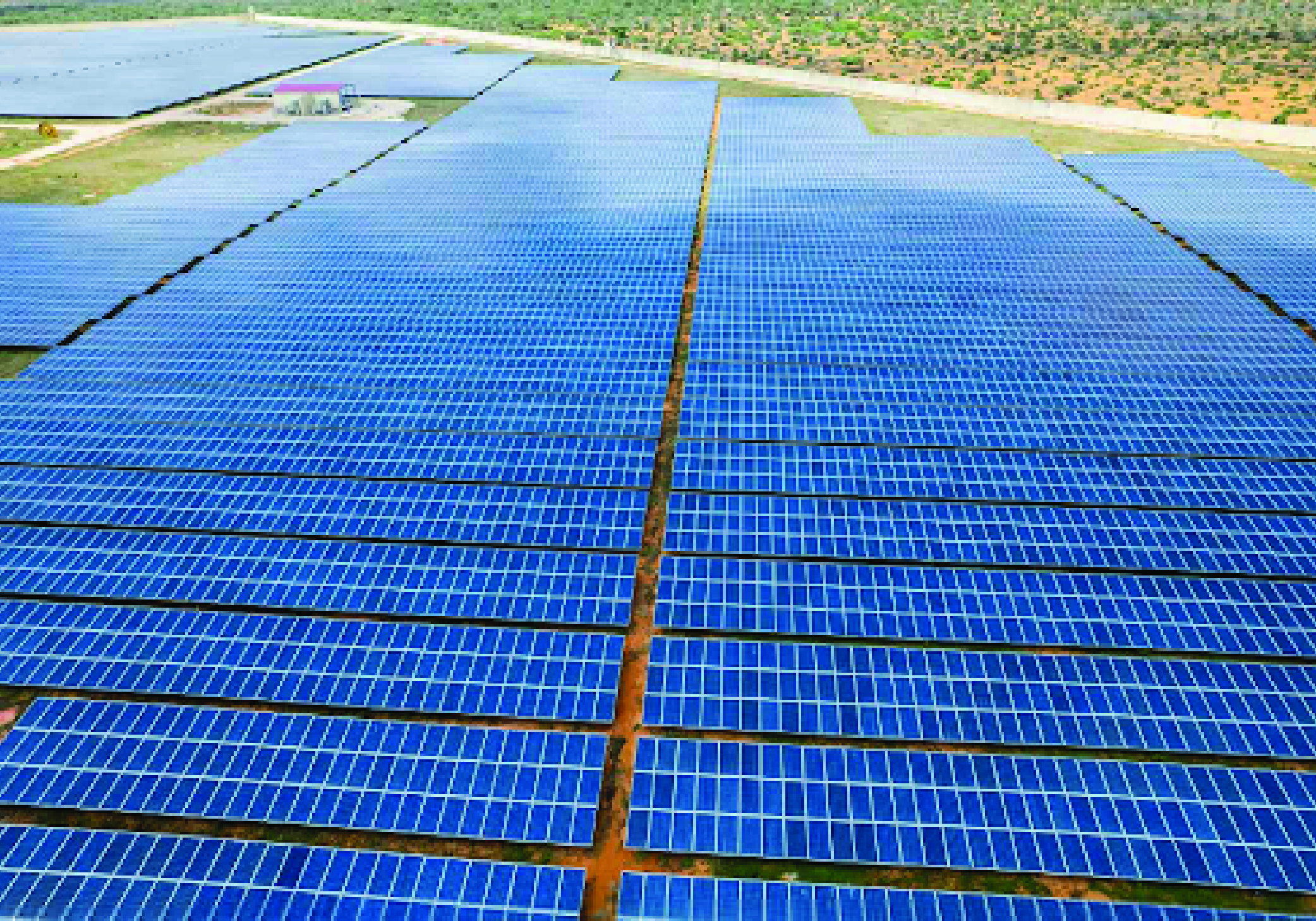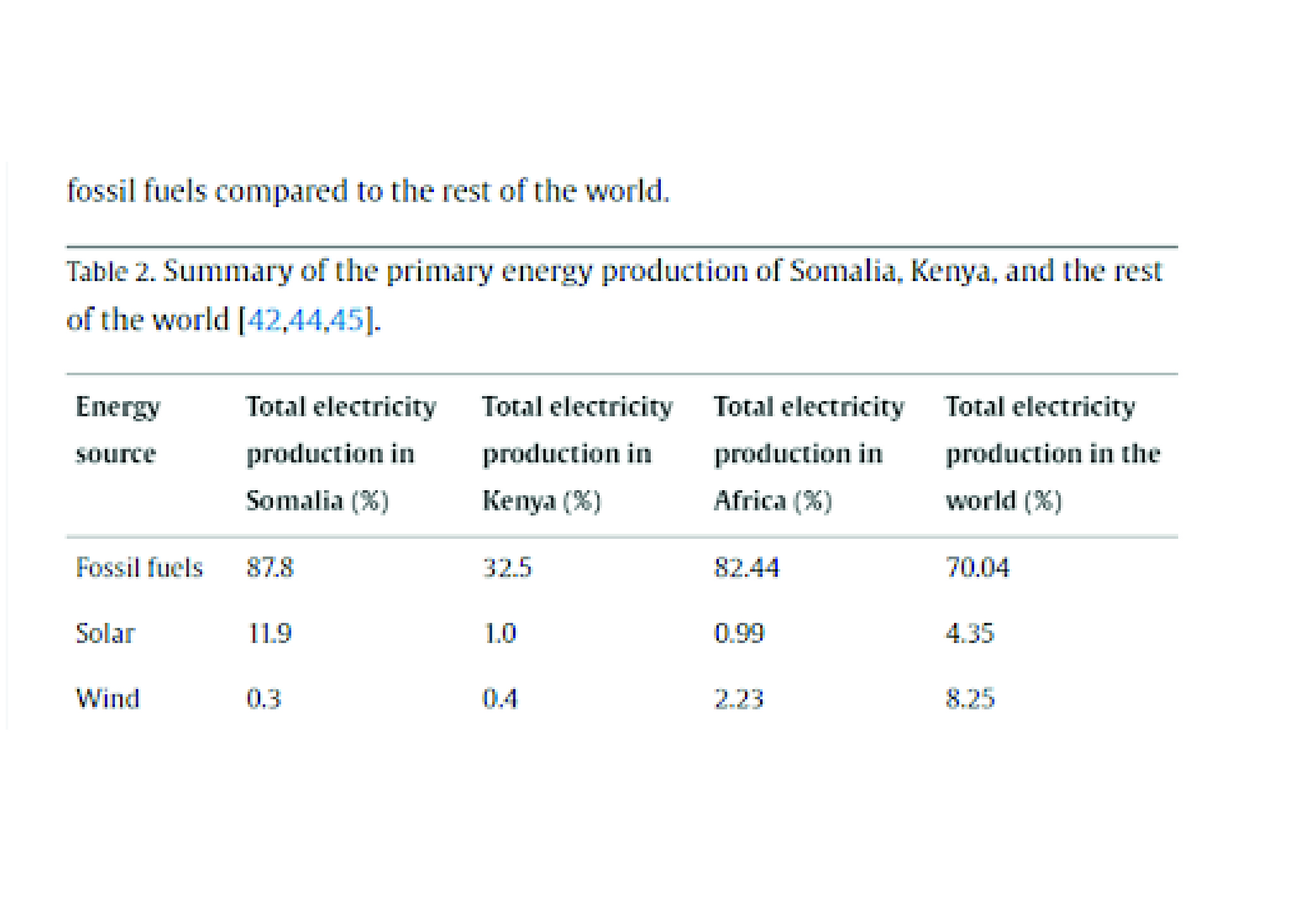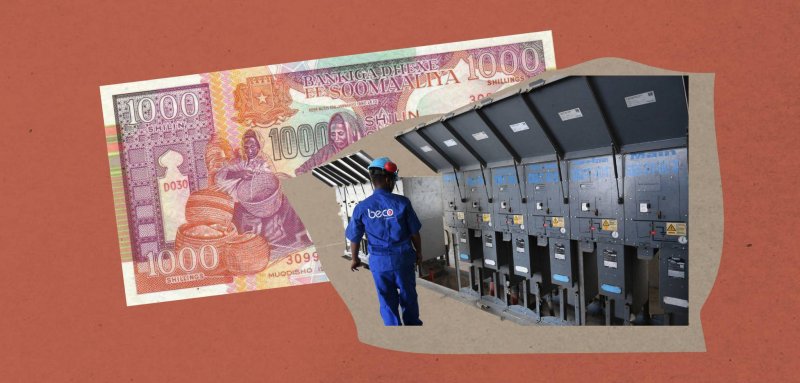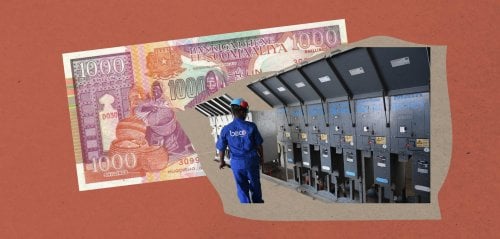In Somalia, citizens pay three times what their counterparts in Washington, D.C. pay per kilowatt-hour, and 15 times more than the average Egyptian citizen. This high cost affects all aspects of life in Somalia, directly leading to an increase in personal consumption bills, as well as indirectly impacting the cost of goods and services. The repercussions ripple further as the absence of feasible energy-dependent industries contributes to the scarcity of job opportunities.
In contrast, Somalia possesses advantages in renewable energy resources, particularly solar and wind power, along with water currents in the Indian Ocean. Could renewable energy be the solution to Somalia's electricity crisis? And why is investing in it less costly than investing in fossil fuel-dependent power stations?
Electricity production and its needs
Following the collapse of the central state in Somalia in 1991, the country entered an era without a government providing public services, with the population coping by meeting their needs through individual efforts. With improved security following the end of the warlord era and the formation of the transitional government and its entry into the capital in 2007, businessmen assumed the role of the state in various sectors, including the energy sector.
In the capital, Mogadishu, there are three private sector-owned companies that produce, transmit, and distribute electricity, and own all the facilities for production, distribution, and transmission. This pattern repeats in other regions of the Federal Republic of Somalia and the independent region of Somaliland.
These companies primarily rely on generating electricity from the fuel they import from Gulf countries, priced according to global rates. They also play the role of the state in establishing the infrastructure for electricity transmission and distribution. However, these constructions are modest compared to facilities for electricity generation, transmission, and distribution around the world. It increases the costs, not to mention the environmental impacts of relying on fossil fuels for electricity generation and relying on coal for cooking in wide areas.
The increased cost of electricity has led to a rise in the price per kilowatt-hour, reaching approximately 34 cents in the capital, Mogadishu, which is considered one of the least expensive areas in electricity production due to large investments that lowered the cost. Meanwhile, the price per kilowatt-hour is around 73 cents in the city of Hargeisa, the capital of the Somaliland region, and approximately 90 cents in Las Anod (Laascaanood), which are the lowest prices in the southern regions of Somalia, in terms of the cost of electricity. This is why a household using two devices that operate on electricity, such as a television and a refrigerator, along with a limited number of light bulbs, pays about $45 a month, while the average citizen’s income is about $175 a month, or about 25% of the monthly income. According to the United Nations Development Programme, a staggering 65% of Somalia's population lacks access to electricity, while government data indicates that 51% of the population does not have electricity coverage.
A household using two devices that operate on electricity, such as a television and a refrigerator, along with a limited number of light bulbs, pays about $45 a month, while the average citizen’s income is about $175 a month, constituting 25% of monthly income
Additionally, there are other indirect costs that the citizens incur, including rising service and commodity prices due to the increased cost of electricity. The lack of job opportunities, high business costs, and the absence of industrial activity further contribute to the government's inability to generate tax revenues for public services and limit job opportunities for citizens.
The renewable energy market
Raseef22 interviewed several owners of companies engaged in the sale, installation, and maintenance of solar energy equipment. The aim was to assess the current state and future prospects of the renewable and green energy market in meeting the growing demand for electricity in Somalia and providing it at economical prices to support productive activities.
According to information from Beco, a leading company in electricity production, distribution, and sales in Mogadishu, the company plans to transition from generating electricity from fossil fuels to solar energy over the next five years. In pursuit of this goal, the company has established two solar power stations, with the first having a capacity of 11 megawatts and the second, inaugurated in November 2023, having a capacity of 12 megawatts. Additionally, the company laid the foundation for a third station with a capacity of 14 megawatts, scheduled to begin operations in early 2024. This will bring the company's total solar energy production to 37 megawatts, equivalent to the operational energy needs of 37,000 households.
The transition to solar energy is underway, with companies like "Biko," a leading electricity production and distribution company in Mogadishu, planning to shift from fossil fuel-based electricity generation to solar power over the next five years. The company has established solar power stations with a combined capacity of 37 megawatts, providing economical electricity for productive activities. The move aims to reduce environmental impact and support sustainable energy solutions.
 Solar panels in Somalian fields
Solar panels in Somalian fields
According to data from the Ministry of Energy and Water Resources, Somalia's electricity production capacity is at 300 megawatts, with 87.8% relying on fossil fuels, 11.9% on solar energy, and 0.3% on wind power, according to a study in the "Energy Strategy Reviews" journal.
 Summary of the primary energy production of Somalia, Kenya, and the rest of the world
Summary of the primary energy production of Somalia, Kenya, and the rest of the world
In Somalia, numerous small companies engaged in the sale and installation of solar power systems gather under the umbrella of the Somali Green Energy Association (SOGEA), working collaboratively with the government to promote the transition to clean energy.
Yehia Osman, founder of "MEGA POWER Energy Solutions," notes that his company and others primarily collaborate with international organizations operating in Somalia to install solar electricity generation systems. These systems aim to provide power for water wells, as well as small hospitals in remote areas, villages, and small towns. Osman adds in an interview with Raseef22 that the absence of relatively large electricity production, transmission, and distribution companies outside the capital Mogadishu, has led to high electricity prices. Consequently, this has encouraged the demand and adoption of solar power and hybrid systems that integrate wind-based units to generate electricity.
Osman believes there are significant investment opportunities in the renewable energy sector, especially those that rely on solar and wind energy, given the growing demand for electricity amid the country's noticeable growth.
The Energy Department, the federal body responsible for energy, anticipates an increase in electricity demand from the current 1,000 megawatts (of which only 30% is available) to 4,600 megawatts by 2037. Achieving this growth requires restructuring and building public networks for electricity transmission and distribution, accommodating various electrical capacities and consumers. This also involves legislative and regulatory frameworks. The Energy Department estimates investments of around three billion dollars over the next two decades to realize this transformation. However, the Ministry of Energy and Water Resources has yet to develop a strategy or plans for renewable and green energy, according to statements from ministry officials who preferred not to disclose their identities to Raseef22.
Promising opportunities
Regarding the opportunities available to generate electricity from renewable energy, Energy Department data indicates that the daily horizontal solar radiation reaches 6 kilowatt-hours per square meter, while the annual wind speed exceeds 8 meters per second in most regions. This all represents promising potential for generating electricity.
The economic sector has witnessed significant growth, thanks to urban revitalization in Mogadishu, the return of many expatriates to the country, and the presence of foreign commercial companies funding large projects, resulting in an increased demand for energy
A report prepared by a research center in Mogadishu, and that was obtained by Raseef22, indicates that the economic sector, amidst the noticeable security stability experienced by the capital Mogadishu, has witnessed significant growth. This growth is attributed to urban development and revitalization in the capital, the return of many expatriates to the country, and the presence of foreign commercial companies financing large projects. This has resulted in an increased demand for energy, creating promising opportunities for companies operating in renewable energy.
Mahmoud Ali Farah, a Somali engineer specializing in renewable energy, anticipates that within the next five years, wind and solar energy could cover approximately 80% of the electrical needs of the capital, Mogadishu, and its suburbs.
Furthermore, there is a growing demand for electronic devices, for which the high cost of energy serves as a barrier to the expansion of their trade in Somalia. This situation may lead Somali banks to finance renewable energy projects, ensuring affordable energy and stimulating commercial activity.
Ali Mohamed, the director of the leading energy company, Beko, stated that "the company's officials are thinking about reducing diesel usage to generate electric power. This involves huge investments in renewable energy projects to harness the available solar heat in Somalia throughout the year". According to Mohamed Sheikh Bashir, the director of the Somali company Solergen, the use of renewable energy is widespread in the country. He says approximately 300 water wells in Mogadishu have been equipped with solar energy technology, along with the installation of solar power systems in many government headquarters and markets in the capital, as well as in dozens of homes.
Overall, there is a growing demand for electricity in Somalia. Given the country's lagging oil and gas sector, investing in renewable energy is a less costly and faster alternative for electricity generation. Even if Somalia were to start oil and gas production, it would require billions of dollars in investments for exploration, production, refining, and transportation, as well as the construction of major power plants for gas and diesel electricity production. Therefore, renewable energy opportunities are more economically viable.
Challenges and obstacles
But this optimism faces many challenges, including those related to the overall situation in Somalia, such as security, political stability, and infrastructure deterioration, including those related to energy infrastructure.
One owner of a company involved in selling and installing solar energy systems, who asked that his name not be disclosed, highlighted to Raseef22 challenges such as the presence of monopolies in the labor market by influential businessmen from large clans, who have overlapping interests with government officials, making government policies subject to the interests of specific individuals. Other obstacles include the lack of field studies, qualified scientific and technical personnel, and the scarcity of spare parts and maintenance services.
When questioned about potential government obstacles to using and installing solar energy systems, some company owners denied such hurdles. However, the government does not provide any incentives to encourage the transition to renewable and green energy, as seen in most countries worldwide. It neither offers customs exemptions on equipment used in renewable energy systems nor provides tax benefits for companies operating in the field.
In contrast to areas under the control of the federal government, including the five states, the situation differs in Hargeisa, the capital of the Somaliland region, which is unilaterally self-declared independent. According to Mahmoud Hassan, the director of the Hargeisa Studies and Research Center, government corruption poses obstacles to projects selling solar energy units through installment plans for citizens. This is due to traditional energy companies paying bribes to officials. He further tells Raseef22 that complications arise from government requirements, such as the Ministry of Commerce mandating those who sell solar energy systems to obtain an electric power company license, an expensive and highly regulated license with many requirements. Additionally, there is an "administrative" decision against issuing "energy company" licenses to firms planning to sell systems on credit, citing "market saturation with energy companies," while existing companies have formed companies in the form of blocs and conglomerates to ensure a monopoly on the market.
In addition to all this, financing stands as an obstacle to citizens’ willingness to purchase and install solar energy systems, as there are no financial institutions in Mogadishu and Hargeisa that finance citizens' purchases of these systems or fund companies for installment sales. In this context, the interplay between the business community in the banking sector and major companies in the communications and electricity sectors creates a state of monopoly and discrimination in financial funding.
Related to the above, the cost of solar energy systems in Somalia is higher than in similar countries, due to customs, shipping costs, and taxes. This makes the cost of installing a system sufficient for a small housing unit around $3,500.
On the other hand, the funding allocated by electricity companies, estimated at about $20 million from the company Beko, for instance, is insufficient to meet the requirements in the energy sector. As the federal government lacks surpluses in the general budget to direct towards investment and receives 70% of budget revenues from international grants and aid, the task of building an effective energy sector falls on the private sector, and this represents opportunities on the other hand.
Somalia can benefit from the potential of the national private sector in the near term and leverage the foreign private sector at both the medium and long-term levels after creating a business-friendly environment for investment. In this regard, the two main obstacles are security and corruption.
To achieve this, the federal energy administration needs to build capacities and competencies in the management, planning, and technologies sectors, creating an attractive environment for investment in the energy sector. Among these requirements is the need to conduct field studies to provide the data necessary for investors.
Raseef22 is a not for profit entity. Our focus is on quality journalism. Every contribution to the NasRaseef membership goes directly towards journalism production. We stand independent, not accepting corporate sponsorships, sponsored content or political funding.
Support our mission to keep Raseef22 available to all readers by clicking here!
Interested in writing with us? Check our pitch process here!




